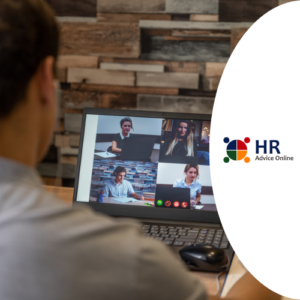How can we improve how we interact with our colleagues in a hybrid/remote working environment?
Without regular social interactions between colleagues there is a reduced opportunity to demonstrate and support aspects of the employment relationship including psychological safety, competence, consistency, dependability, and integrity. A hybrid work model though presenting a reduction in physical and face to face contacts can be supported through virtual face to face contact such as the use of online platforms (such as teams and zoom amongst others) to have virtual conversations as an alternative to a telephone conversation. Every employee should have regular ongoing support in the remote workplace just as they would onsite surrounded by their colleagues.
A lack of in person contact, social interaction, and communication, can lead to mistakes, mis-intent, or misunderstandings due to loss of social cues. It is more important for this reason that there are increased regular interactions and communication to ensure an employee is engaged and feels connected to the team.


With social workplace bonds changing, The State of the Global Workplace report found that 67 percent of Australian and New Zealander’s surveyed were emotionally detached from their employment. Eleven per cent of those were reported as “loud quitting”, that they were actively disengaged, demonstrating a breakdown in trust between employees and their Employer.
Many employees seek the positives provided by a hybrid or remote working arrangement including flexibility of the home-office location, and the genuine work life balance that working remotely (or in a hybrid manner) offers. For this reason, employers are considering new ways to overcome the challenges of the remote work environment and the constraints associated with that to enable and best support such ways of working, ongoing.
Where there are little or no social cues, systems still remain imperative including more formalised structures, processes and metrics which can be implemented and maintained (and monitored) to support employees in forming and maintain trust in their workplace relationships.
How can we improve how we interact?
Amy C. Edmondson, Novartis Professor of Leadership and Management, says “trust must be explicitly and deliberately built in remote environments” and that “trust and psychological safety must be paired with accountability, or a sense of psychological ownership and commitment to excellence, to generate effective performance”.
Ultimately, clear and consistent systems and regular communication and interactions, enable productive, consistent work output and support harmonious remote team relationships, improving the business outcomes and creating stability.
This type of framework involves clear, concise, constructive, and regular communication between members of remote and hybrid working teams. This includes explanation of the workplace challenges and defining the shared responsibility for positive workplace outcomes and maintenance of healthy workplace interactions.
Managing a remote or hybrid team can be challenging. It can often change the way in which the team operates and may impact systems of work. For support you can contact the team at HR Advice Online or for assistance with any HR matters, please contact us at [email protected] or 1300 720 004.




